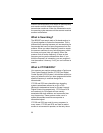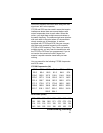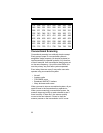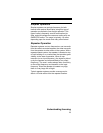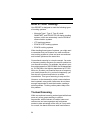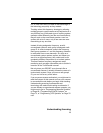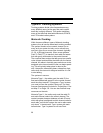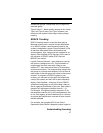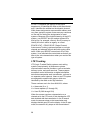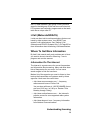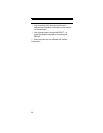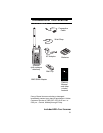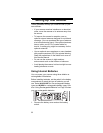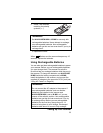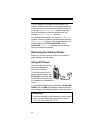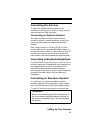
28
01-062. 01 identifies the agency as the police
department, 06 identifies the fleet as the West district,
and 2 identifies the subfleet as the dispatch channel.
While these assignments are somewhat arbitrary and
vary from system to system, there are many resources
on the web for finding the assignments for most
systems. Because of the logical hierarchy of the AFS
system, your BR330T lets you assign wildcard ID’s
that let you, for example, use only one ID memory to
identify all units in either an agency or a fleet.
EDACS SCAT – EDACS SCAT (Single Channel
Autonomous Trunking) systems operate on a single
channel and alternate control data with analog voice
traffic. While your BR330T cannot track ID’s in this
system, it can eliminate the control data so that all you
hear is the voice transmissions when you monitor this
type of system.
LTR Trunking
LTR (Logic Trunked Radio) systems are trunking
systems used primarily by business or private
communications service providers, such as taxicabs,
delivery trucks, and repair services. These systems
encode all control information as digital subaudible
data that accompanies each transmission, so there is
no separate control channel. Users on an LTR system
are assigned to specific talk groups, which are
identified by the radio as six digit numbers.
These numbers are in the form AHHUUU, where:
A = Area code (0 or 1)
H = Home repeater (01 through 20)
U = User ID (000 through 254)
When the scanner receives a transmission on a
channel set to the LTR mode, it first decodes the LTR
data included with the transmission. In the ID search
mode, the scanner stops on the transmission and
displays the talk group ID on the display. In the ID scan
mode, the scanner only stops on the transmission if



